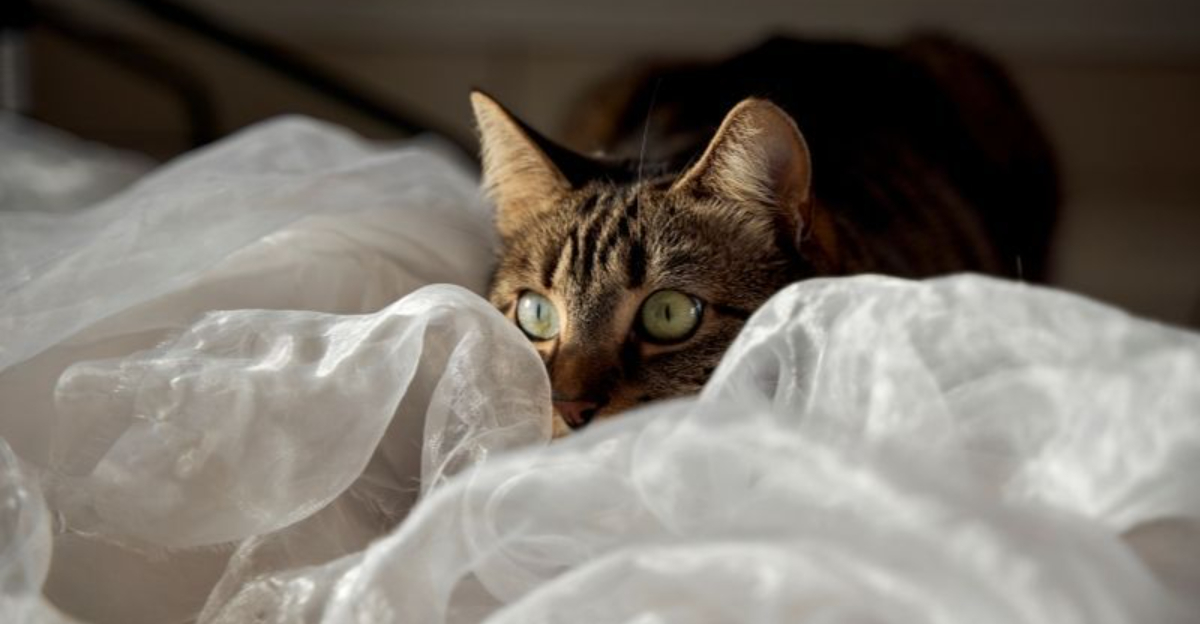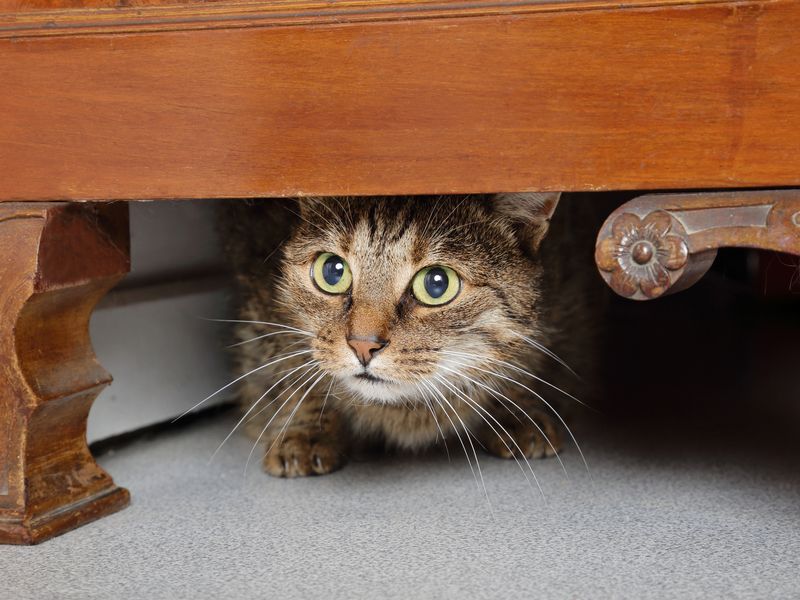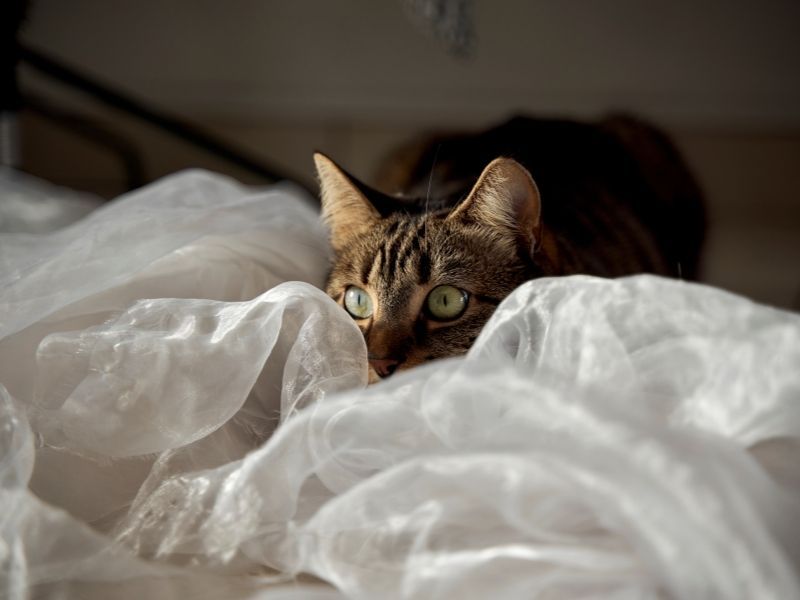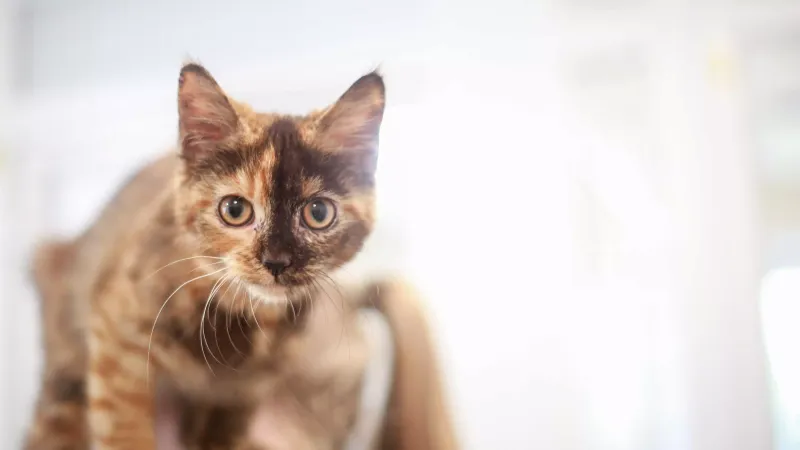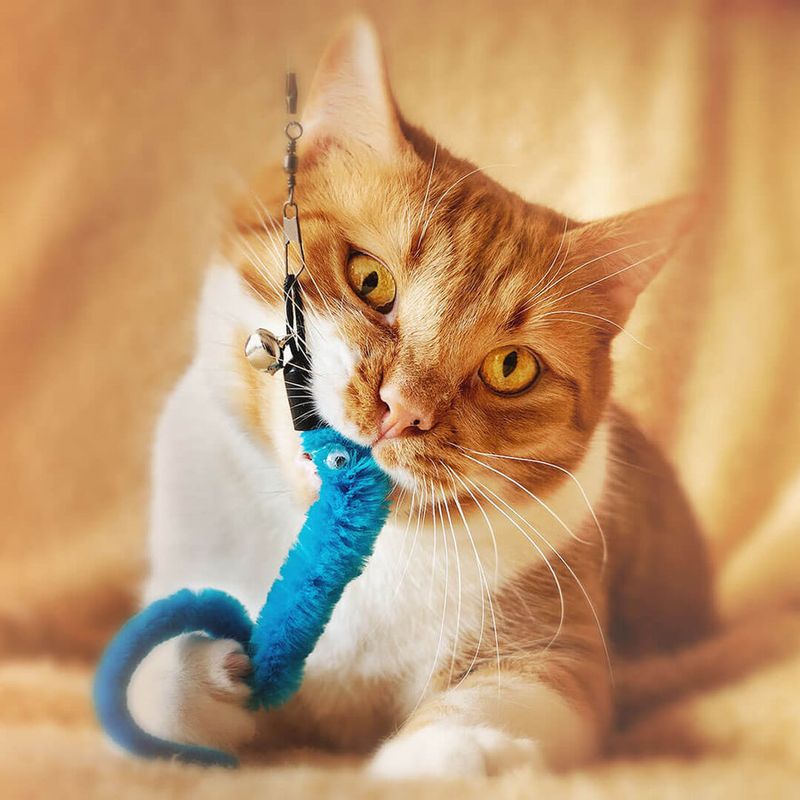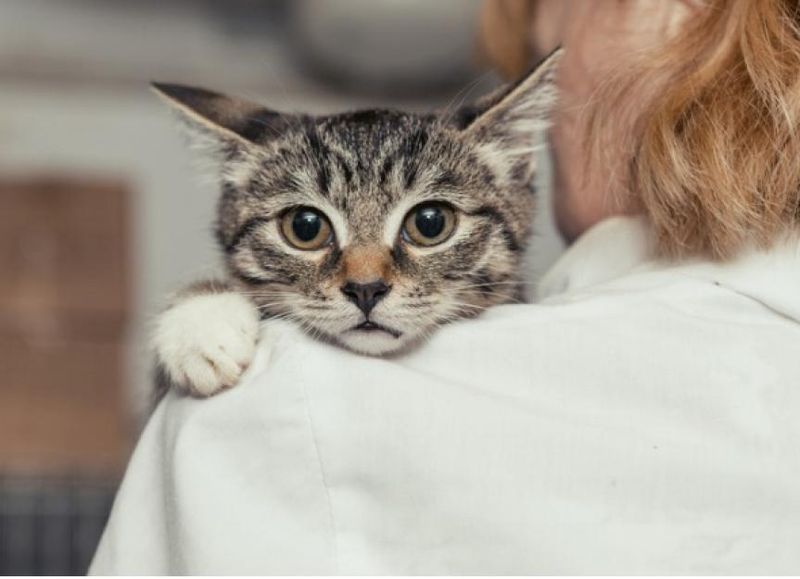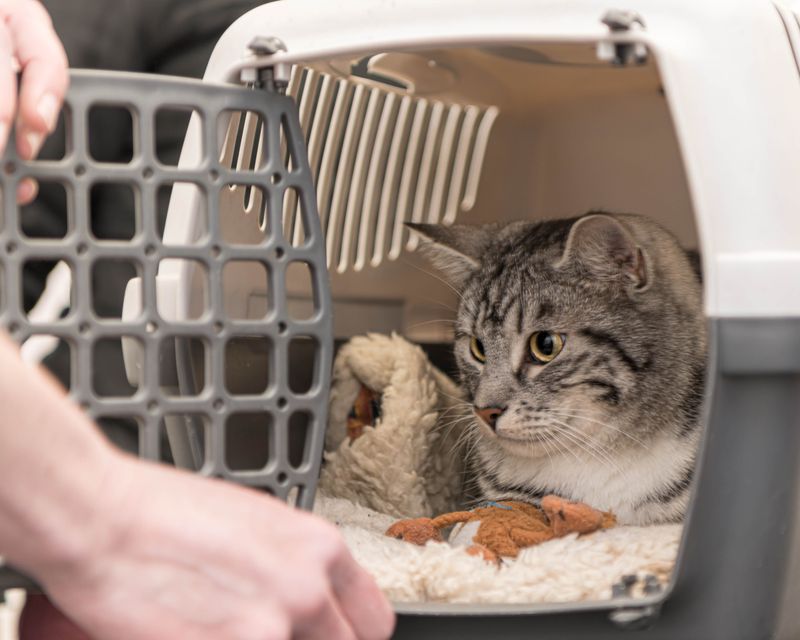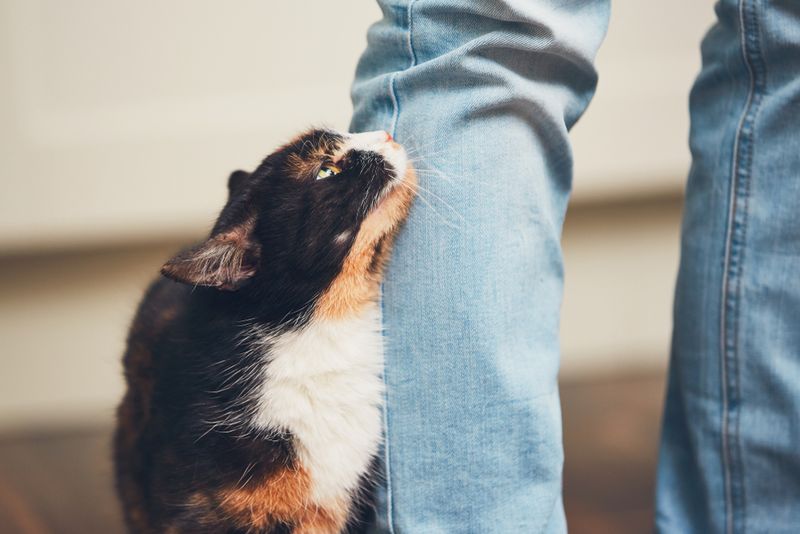📖 Table of Content:
Cats thrive on routine and familiarity, and any disruptions can make them feel uneasy. Their environment plays a crucial role in their well-being, and even small changes can cause stress. Recognizing what might cause anxiety can make a big difference in how comfortable and relaxed your cat feels.
Some actions and habits that seem harmless to humans can have a significant impact on your cat’s emotional state. Whether it’s a sudden change in their surroundings or an overlooked behavior, these triggers can affect their sense of security. Knowing the signs and what to avoid will help ensure your cat stays calm and happy.
Creating a stress-free home for your cat is essential for their health and happiness. By identifying and minimizing these anxiety triggers, you can foster a peaceful space for your feline companion. Here are 8 common mistakes that can cause your cat unnecessary stress and anxiety.
1. Loud Noises
Sudden loud noises like thunderstorms or fireworks can easily frighten cats. A loud crash, a vacuum cleaner, or even a doorbell can startle them. Cats have a heightened sense of hearing, making them sensitive to abrupt sounds.
Imagine the jolt of fear you might feel if a loud, unexpected sound suddenly disrupted your peace. To help your cat, provide a safe and quiet space during noisy events. Consider playing soft music or using a white noise machine to mask disruptive sounds. This small change can help keep your cat calm and reduce anxiety.
2. Changes in Environment
Cats are territorial creatures, and any change in their environment can cause stress. Moving to a new home or rearranging furniture can unsettle them. They rely on familiar scents and surroundings to feel secure.
Keep your cat’s stress levels low by introducing changes gradually. Allow them time to explore new settings at their own pace. Provide familiar items such as their bed or toys to offer comfort. A gradual transition can make a world of difference to your cat’s peace of mind.
3. Lack of Routine
Routine is crucial for cats, and disruptions can lead to anxiety. Feeding, playtime, and sleeping patterns should be consistent. Cats thrive on predictability, and a lack of routine can create uncertainty and stress.
To keep your cat content, establish a regular schedule and stick to it as closely as possible. Regular meal times, play sessions, and quiet times create a comforting rhythm in their day. Stability in their routine helps maintain a sense of security and reduces anxiety.
4. Overcrowded Living Space
When there’s too much activity around, cats can become anxious and uncomfortable. A home with too many people or pets can feel like a constant source of stress. Giving your cat a safe space to retreat to allows them to recharge and feel secure.
To ease your cat’s anxiety, ensure they have a designated space where they can relax undisturbed. Providing vertical space, like shelves or cat trees, can also help them feel more secure. A balanced living environment contributes greatly to their comfort.
5. Lack of Mental Stimulation
Intelligent cats need constant mental challenges to stay happy and healthy. If their environment doesn’t provide enough stimulation, boredom can lead to anxiety.
Imagine spending an entire day without anything to do—boredom would quickly set in. To prevent this, offer interactive toys and engage in regular play sessions. Puzzle feeders and new activities can keep their minds active. By providing a stimulating environment, you help keep your cat’s mind sharp and anxiety at bay.
6. Changes in Household Members
The arrival or departure of household members can unsettle a cat. New family members, whether human or animal, can disrupt their sense of security. Cats are sensitive to changes in social dynamics.
Introduce new members gradually, allowing your cat to adjust at their own pace. Provide them with extra attention and familiar comforts during this transition. Patience is key to helping them feel secure and reducing anxiety.
7. Visits to the Veterinarian
Trips to the vet can be a source of significant stress for cats. The unfamiliar environment, smells, and handling can be overwhelming. The experience is often loud and bustling, which adds to their anxiety.
To ease the stress, accustom your cat to their carrier and take them on short car rides to build comfort. Rewarding them with treats after the visit helps associate the vet with positive experiences. Preparation can significantly reduce their anxiety levels.
8. Inconsistent Human Interaction
A cat’s emotional security is linked to consistent interaction with their human family. Irregular attention can cause feelings of neglect and anxiety, as they thrive on stable companionship.
Imagine eagerly waiting for attention only to be met with inconsistency. Spend quality time with your cat every day to strengthen your bond. Regular playtime and affection assure them of your presence and love. Consistent interaction builds trust and security, keeping anxiety at bay.
